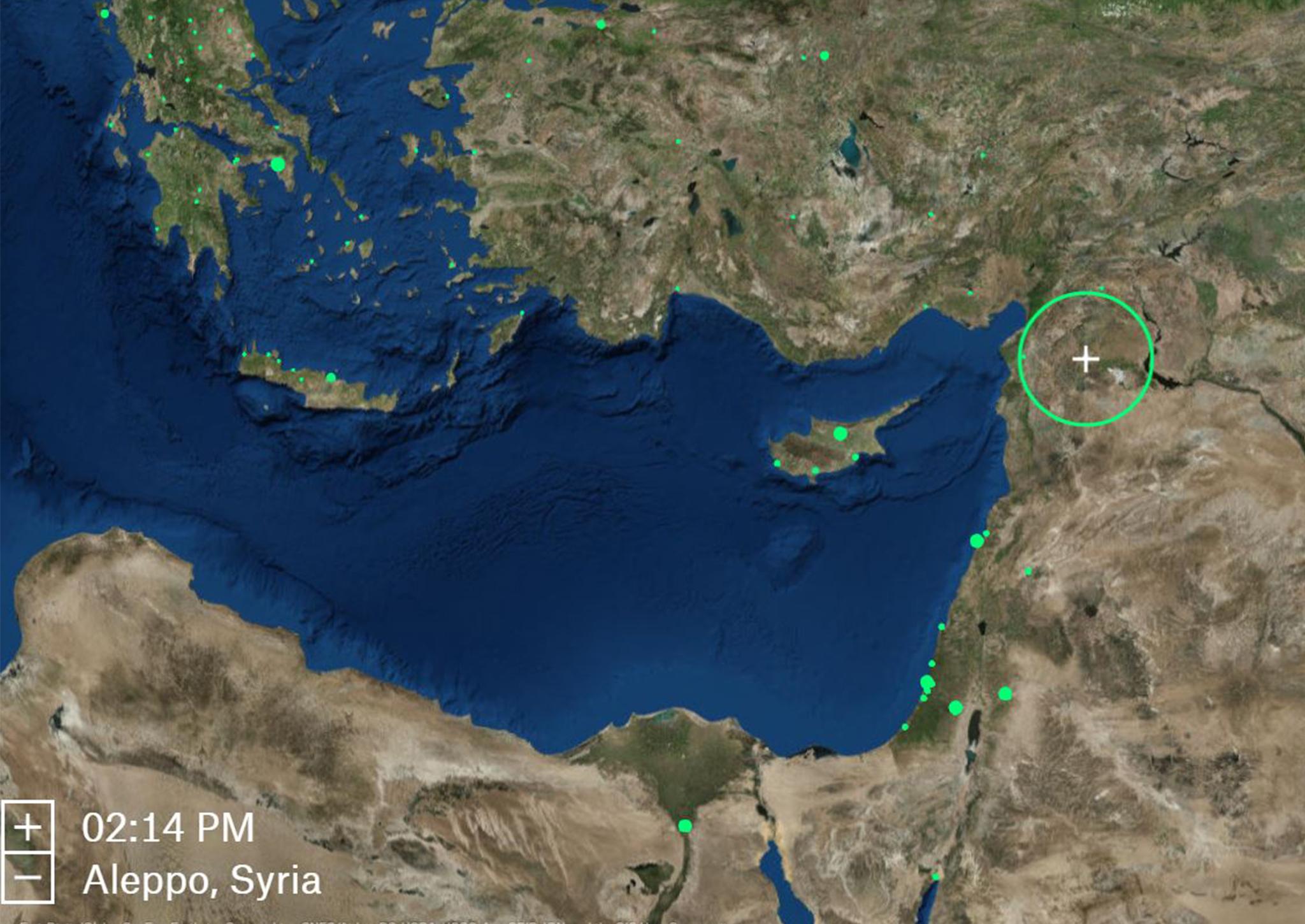Radio Garden: Close your eyes and listen to the world, from the live broadcasts of Havana to Aleppo
At the end of a year where the world has become increasingly bewildering and alien, a new site invites listeners to cross borders, and with profound results

Radio Garden works like any other digital radio but, in this case, the world is your tuning dial. As you turn it with your mouse, gliding between borders, over cities and towns, it crackles and tunes into every station available in the area.
The project was designed by Amsterdam’s Studio Puckey and released on Monday. It lets users listen to 7,877 radio stations around the world by dragging and dropping a pointer over a 3D Google Earth interface.
I started browsing Radio Garden in Europe, and slowly went from west to east, from London and Paris through to Germany and Lithuania. I found out what techno they’re listening to in Berlin, before swinging over to catch up on the latest pop music in Kazakhstan.
There’s something profound about going around and eavesdropping on what people are listening to all over the planet. Dragging and dropping from place to place, you get glimpses of different countries, cities and regions, and not just through the music, but the adverts and talk show discussions.
Going further afield I got hooked on South Korea’s KCR, a station that plays non-stop classical music. I then tuned in to a Sri Lankan talk show, before heading south west down to Africa where I discovered a radio drama broadcasting in northern Madagascar.
It’s easy to forget that our experiences abroad aren’t just based on what we see. Flicking around the Radio Garden world is like getting into cabs at the airports of your choice, and in each one the driver has the local station on. It’s that initial moment of cultural discovery, one of the first when you leave the airport, that helps you begin to understand where you are.
That said, from your listening post, some stations resonate more than others, and in ways you would never experience as a tourist. From the only radio station available from Aleppo, I listened to a melancholy ballad while horrifying images from the city, and heartbreaking messages from its residents, filled the news.
On top of its live streams, Radio Garden also provides collections of archived stories and jingles. Although its audio snippets from history are the most interesting.
Hovering over Nottingham, you can listen to a speech on Radio Arthur, a pro-union pirate station. Broadcast during the miner’s strike in 1984, it speaks to the workers in a language you can still hear among many of today's new breed of anti-establishment voters. “If you want to save your pits, don't believe what the coal board tell you,” it says against a backdrop of Glory, Glory Hallelujah. “Don’t listen to the renegade strike breakers. Don't be fooled by what you see or hear on the media. Listen to what your union tells you.”
You can also listen to the moment police stormed Italy’s Radio Alice in 1977, and tried to take it off air due to its support for a student uprising in Bologna. Or there’s Radio Moscow’s broadcast from 1963, announcing that Valentina Tereshkova had just become the first woman in space.
As you spin through the world, these historical snapshots are a reminder of how radio is able to engage us in a way no other medium can. In an increasingly fractured world filled with distraction, it offers an alternative. Because when there is nothing to see, all we can do is close our eyes and listen, and that’s when we really hear the world.
Join our commenting forum
Join thought-provoking conversations, follow other Independent readers and see their replies
Comments
Bookmark popover
Removed from bookmarks